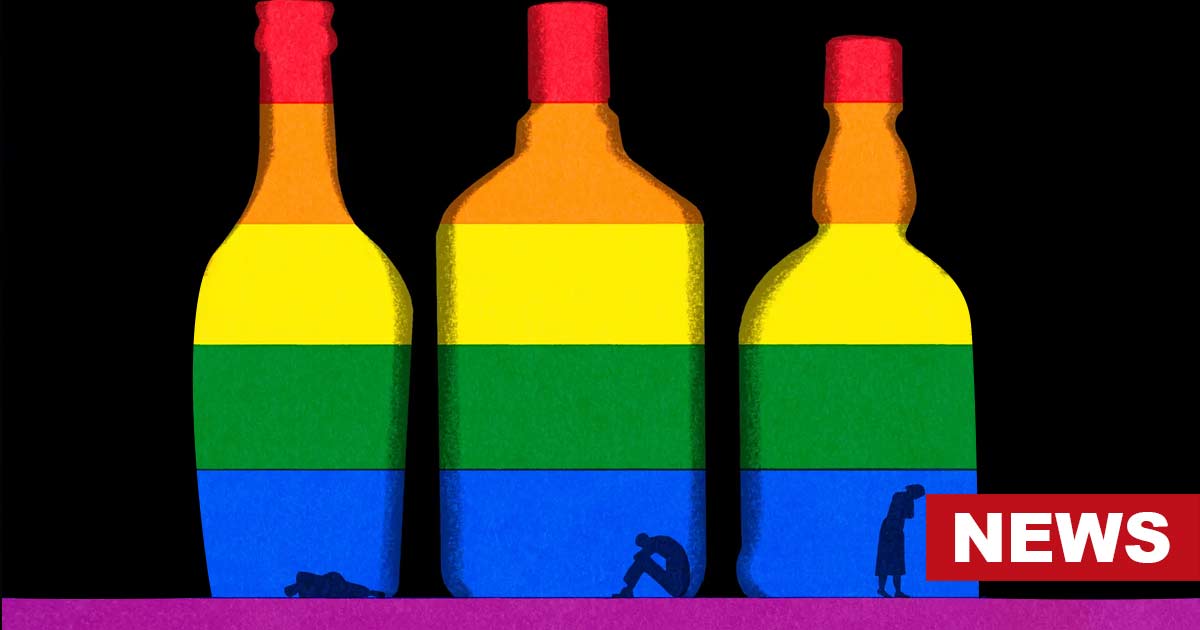A recent report published by the US Department of Health and Human Services’ Substance Abuse and Mental Health Services Administration highlighted the association LGBTQ and addiction.
It has been found that substance abuse in the LGBTQ community has reached alarming levels. Individuals who identify as gay, lesbian, or bisexual are more prone to experiencing mental health conditions and substance misuse compared to their heterosexual counterparts.
The survey, conducted as part of the National Survey on Drug Use and Health, included data from 2021 and 2022 and focused on the mental well-being of LGB adults in the US. The forthcoming survey aims to expand its scope by incorporating transgender and nonbinary individuals.
The report highlights how social discrimination fuels addiction in the LGBTQ population. Negative experiences faced by bisexual individuals within the LGBTQ community, coupled with the challenges of “invisibility and erasure” and a lack of support, play a role.
Shockingly, bisexual females were discovered to be six times more likely to have attempted suicide in the past year compared to their straight peers. Additionally, they were three times more likely to have an opioid use disorder.
Similarly, bisexual males were three times more likely to have experienced serious mental illness. The report also revealed that about one-third of bisexual and gay male respondents reported a substance use disorder in the year prior to the survey.
Moreover, the survey findings indicated that mental health and substance use challenges were even more prevalent among women and people of color within the LGB community.
Major depressive episodes were reported by over one-fourth of bisexual females and more than one-seventh of lesbian females in the year they took the survey. Lesbian and bisexual women were also more likely to engage in tobacco smoking, binge drinking, and heavy drinking compared to their straight counterparts.
Interestingly, the study did not identify significant differences in substance use patterns between gay, bisexual, and straight men. The prevalence of smoking, binge-drinking, and heavy drinking was found to be similar across the three groups.
While the exact reasons for the higher prevalence of mental health and substance use issues within the LGBTQ community remain unclear, the report suggests that unique stressors experienced by sexual minorities contribute to these outcomes.
Dr. Jeremy Kidd, a psychiatrist involved in improving health outcomes for LGBTQ populations, emphasized the importance of such research, particularly when conducted by influential organizations like SAMHSA.
According to Dr. Kidd, LGBT individuals face a distinct kind of stress known as “minority stress,” resulting from discrimination, stigma, and the societal privileging of heterosexuality. The survey’s findings serve as a reminder for mental health professionals and policymakers to develop affirming programs and treatments that cater to the diverse segments of the LGBTQ community.
Establishing supportive relationships can be a critical protective factor, especially for young LGBTQ individuals, in preventing substance use problems.
The presence of at least one affirming adult in their lives, such as a parent, grandparent, teacher, counselor, faith leader, or healthcare provider, can make a significant difference. Pride months also play a crucial role in promoting support and acceptance for the LGBTQ community, positively impacting their overall well-being.
This report sheds light on the pressing need for comprehensive and inclusive approaches to address mental health and substance use issues faced by the LGBTQ population. By fostering a sense of community and creating an environment that affirms and values individuals’ identities, we can work towards reducing the disparities in health outcomes among sexual minorities.
Speaking about measures to address rampant substance abuse in the LGBTQ community, Kidd said, “Having that person in that young person’s life that says ‘I see you, and I affirm you’ can be hugely protective against substance use problems later down the line, because it sort of challenges that narrative that we’re talking about when people experience stigma and discrimination that teaches people that they’re less than.”
He further elaborated: “[Pride months] are really important parts of the LGBT community that can be thought of as resilient, and that community aspect can be a really important protective factor for LGBTQ folks.”

























